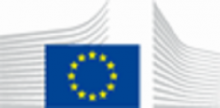An interregional workshop on formulating national policy for radioactive waste management has been held in Egypt from 3 to 7 September. The workshop brought together 15 participants from ten IAEA Member States in the Mediterranean region, and focused on plans for the establishment of national policies and strategies to achieve sustainable “cradle to grave” control of radioactive sources. The workshop took place under an interregional technical cooperation (TC) project, INT/9/176. This project aims to ensure an adequate and permanent control over radioactive sources in the Mediterranean region and is supported by the European Commission.
Radioactive sources are widely used for beneficial purposes in different branches of industry, medicine, agriculture and research. Sources are present in a very wide range of equipment – such as: radiotherapy machines and other equipment used for cancer treatment, measuring instruments such as gauges used to measure soil moisture and soil density and many other components, seed irradiators, lightning rods that protect buildings from lightning strikes and some smoke detectors. Once radioactive sources have reached the end of their useful life, they must be carefully managed, and require proper disposal processes to prevent them from becoming “orphans”. Orphan sources are disused radioactive sources that have fallen out of regulatory control, due to theft, loss or abandonment. To protect the public from the hazards of ionizing radiation, and to prevent disused sources from becoming orphan sources, “cradle to grave” control of radioactive sources is essential. This requires a national policy and strategy, an adequate legal and regulatory framework, and adequate resources and infrastructure. A strong regulatory framework for the long-term management of radiation radioactive sources must cover the entire lifecycle, from production and use to disposal.
Through TC project INT/9/176, the IAEA helps Member States in the Mediterranean region to strengthen their national management and regulatory infrastructure on the control of radioactive sources, including the development and implementation of disposal programmes that utilize the Borehole Disposal Concept (BDC). Countries participating in the project include Albania, Bosnia & Herzegovina, Croatia, Cyprus, Egypt, Ghana, Greece, Jordan, Lebanon, Macedonia, Malta, Montenegro, Morocco, Nigeria, Slovenia, Tanzania, Tunisia and Turkey.
Under the project, these Member States receive support and advice on drafting policies and strategies on the control of radioactive sources to ensure that they are properly regulated at all times, from the production, trade, use, recycling/reuse, repatriation, processing when disused, transportation, storage and disposal. The project also addresses the need for national policies and strategies for the management of orphan sources.
The IAEA seeks to foster international cooperation between these countries and to encourage the development of a harmonized regional “cradle to grave” approach to managing radioactive sources, consistent with the IAEA safety standards, legal instruments, and international best practices.
In addition to regulatory support, the IAEA helps Member States with the implementation of advanced technologies developed by the IAEA for the safe management and disposal of Disused Sealed Radiation Sources (DSRS). Such mechanisms include specialized conditioning operations; the use of Mobile Hot Cell (MHC) and the Borehole disposal of disused Sealed Sources (BOSS).
The Member States are also familiarized with methodologies and software tools for site selection and generic safety assessment of predisposal activities, disposal operations and post-closure. These include, inter alia, the screening and Safety Assessment Framework (SAFRAN) software tools developed through the IAEA, thus helping Member States in their decision-making processes and licensing activities.
Using the above combination of approaches and interventions can enable adequate, safe, secure, simple and cost effective solutions for the management of DSRS and permanent control over radioactive sources at all times, from “cradle to grave”.
Strengthening “cradle to grave” control of radioactive sources, including “orphan” sources, in the Mediterranean region, with EU support
12 Sep 2012

Related resources
Last update: 09 Mar 2021



